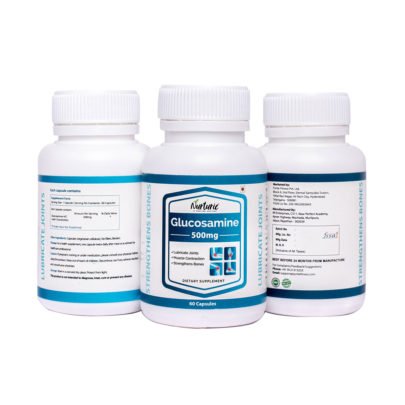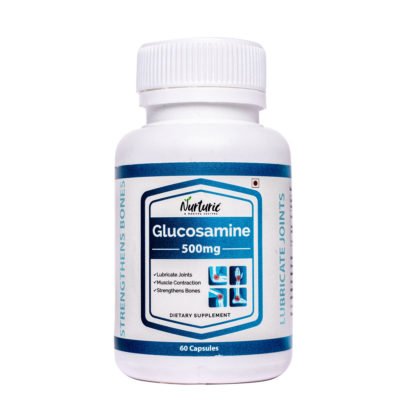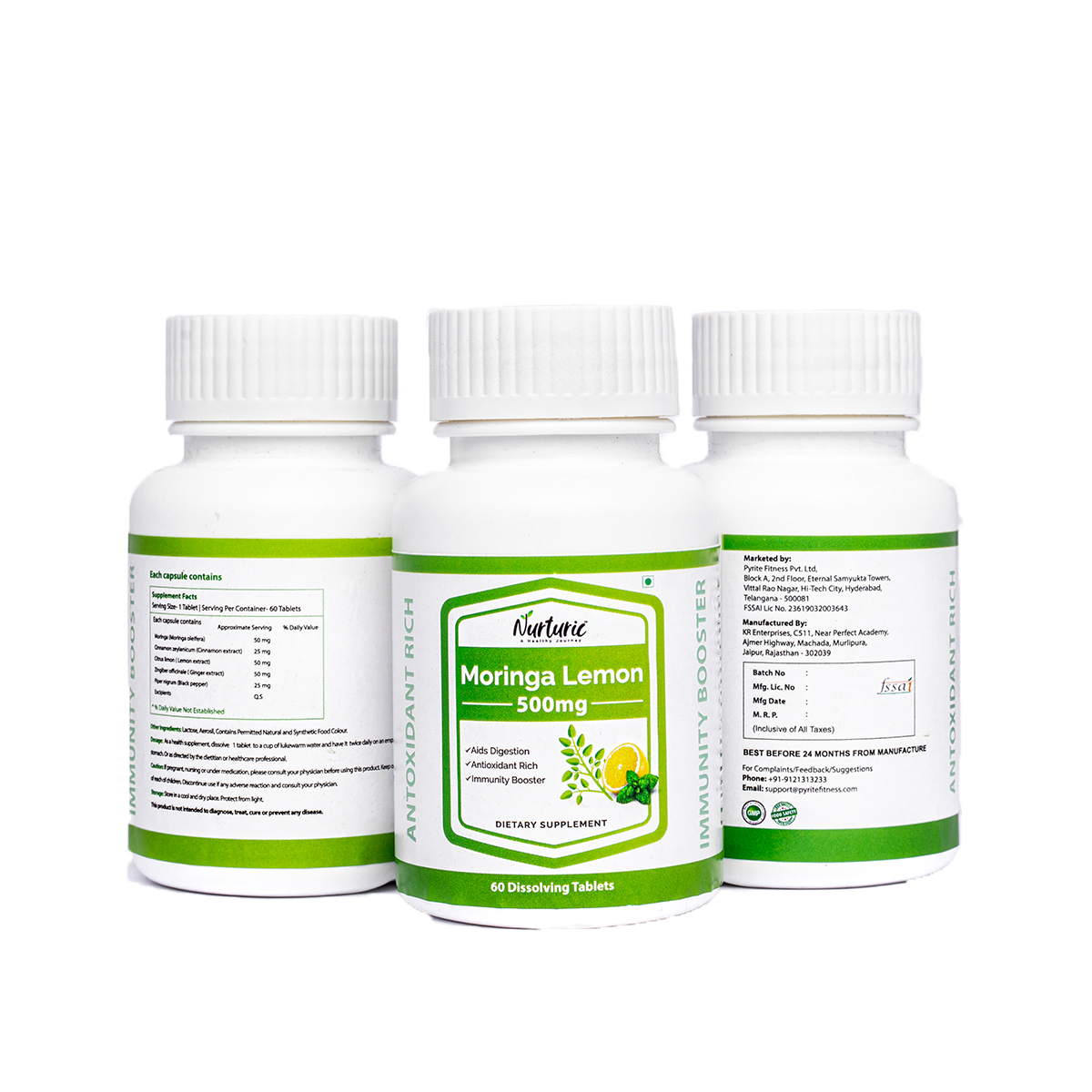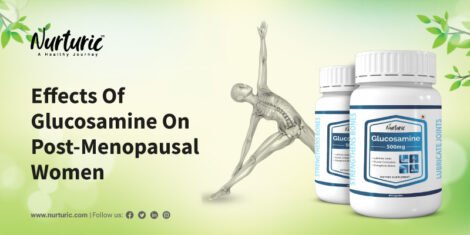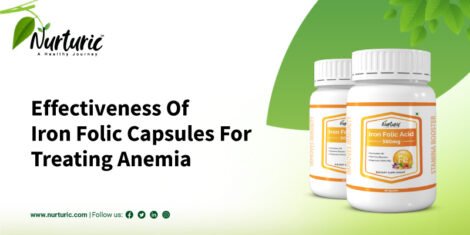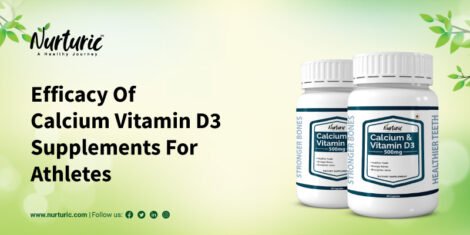- You have no items in your shopping cart
- Subtotal: ₹0.00
The term ‘fats’ has garnered notoriety amongst the health-conscious populace in the preceding decades. Fortunately, a change in perceptions has led to a clear distinction between healthy and unhealthy fats. This change in attitude has resulted in the addition of foods rich in healthy fats into our daily diet.

Foods such as walnuts, flaxseeds, chia seeds, fatty fish and soybean have become a part of a healthy diet. And what do they all have in common? Omega-3 fatty acids! They are incredibly beneficial for your optimal health. This article will talk about omega-3 fatty acids and the 10 best foods that are a rich source of these acids.
What is Omega-3?
Omega-3 fatty acids are a type of essential fat. They are considered essential because we need them to survive and stay healthy. Our body does not make these on its own; we get them from certain foods with a significant quantity of them.

There are three types of omega-3 fatty acids:
EPA and DHA are found in fatty fishes.
- Eicosapentaenoic acid (EPA)
- Docosahexaenoic acid (DHA)
- Alpha-linolenic (ALA) is a form of omega-3 found in plants
We have established what these fatty acids are, but what are the benefits that they offer that truly make it an essential part of our diet?
What are the Benefits of Omega-3?
Apart from the fact that it is an essential fat we need for survival and living a healthy life, these fatty acids also provide myriad other benefits.

Omega-3 fatty acids help your health in the following ways:
- Lowers blood pressure
- Improves heart health
- Lowers inflammation
- Lowers risk of stroke
- Manages arthritis
- Helps with depression and dementia
- Helps against Alzheimer’s disease
A diet rich in these fatty acids can help you stay in optimal health. Let’s now see which foods can help you get your daily requirement of these essential acids.
10 Best Sources of Omega-3 Fatty Acids
The best part about this super-healthy fat is its availability and flexibility, making it an easy addition regardless of dietary habits. There are several rich sources of these fatty acids. And while non-vegetarians can get it through fish, vegetarians or vegans can choose from the various alternatives that provide the same benefits.

We already discussed the benefits of omega-3 fatty acid foods. Let’s now look at the 10 best sources of omega-3 fatty acids.
1. Chia Seeds
Chia seeds are one the best sources of vegan omega-3. They are highly nutritious and are rich in protein and fibre. Chia seeds are a versatile ingredient that can be added to your meals, smoothies or eaten directly. They are highly nutritious and have several health benefits.
- Rich in antioxidants
- Boosts weight loss
- Lowers risk of heart disease
- Reduces sugar levels
Chia seeds are rich in calcium, phosphorus, magnesium and potassium. They contain 2.1 g of alpha-linolenic acid (ALA) per 1 tbsp.
2. Flax Seeds
Flax Seeds are a modern-day superfood with myriad health benefits. They can be powdered and eaten directly or sprinkled on salads, smoothies or breakfast cereal. Flaxseeds have several health benefits:
- Lowers cholesterol
- Lowers blood pressure
- Rich source of plant-based protein
- Helps in weight management
They are rich in fibre and a good source of lignans, which may reduce cancer risk. Another essential ingredient in flaxseeds is fatty acids. Flax Seeds are an excellent source of plant-based protein and omega-3. So, if you are vegetarian or vegan, flaxseeds are an ideal replacement for fish for your protein and essential fats requirements. They are a rich source of alpha-linolenic acid (ALA), which are essential fatty acids.
1 tbsp of flax seeds contain 2.350 g of alpha-linolenic acid (ALA).
3. Walnuts
Walnuts are highly nutritious nuts that are rich in fibre, copper, manganese, and vitamin E. They are highly beneficial for your health.
- Rich in antioxidants
- Decreases inflammation
- Promotes gut health
- Lowers blood pressure
- Helps manage weight
They are also a rich source of omega-3 fatty acids. 1 ounce (2 tbsps) of walnuts contain 2.5 g of alpha-linolenic acid (ALA).
4. Salmon
Salmon is considered to be one of the most nutritious fish in the world. They are rich in protein, selenium, magnesium, potassium, B vitamins and vitamin D. Many health experts recommend adding a serving of salmon to your daily diet for optimal health.
Regular consumption of this healthy fish helps in weight management, lowering the risk of heart diseases and dementia.
100 g of wild salmon contains 1.8 g of omega-3 fat.
5. Mackerel
Mackerel is another popular type of fish that is highly rich in nutrients. They are rich in vitamin B12, selenium and are highly beneficial for skin health. Apart from this, they are also rich in omega-3. 100 grams of mackerel has 5.1 g of omega-3.
6. Soybeans
Soybeans are one of the most widely used and popular vegan sources of protein. They are also rich in fibre, folate, magnesium, riboflavin, vitamin K and potassium. Soybeans are also high in omega-6 and omega-3 fatty acids.
100 g of dry soybeans contain 1.6 g of alpha-linolenic acid (ALA)
7. Avocados
Avocados have gained widespread popularity over the years and are a highly popular part of a vegan diet. They are known for their high-fat content and are a good source of healthy fats, especially omega-3 fatty acids. Avocados are high in protein, fibre, vitamin B5, potassium, phosphorus, magnesium, iron and vitamin K. They help improve heart health, digestion and reduce cell damage.
100 g of raw avocados (California) contain 0.1 g of alpha-linolenic acid (ALA).
8. Oysters
Oyster is a type of shellfish, which is considered among the healthiest and most nutritious foods. They are rich in zinc, vitamin B12, and copper. They are highly beneficial for brain health and in treating osteoporosis.
3 ounces of oysters contain 585 mg of omega-3 fatty acids.
9. Sardines
Sardines are a very popular type of fish across the world known for being delicious and highly nutritious. They are small oily fish rich in vitamin B12, D, and selenium.
2 ounces of sardines have 556 mg of omega-3 fatty acids.
10. Seaweeds
Seaweeds are an excellent source of omega-3 fatty acids and protein for vegetarians and vegans. Seaweed and spirulina are algae that help with diabetes, weight loss, heart and gut health.
100 g of dried seaweed and spirulina contain 0.8 g of alpha-linolenic acid (ALA).
These are some of the most common omega-3 foods in India. Luckily if you are unable to meet the requirements through your regular diet, there are other alternatives. Omega-3 supplements are widely available and highly popular. Several foods are fortified with these acids.
Omega-3 Supplements and Fortified Foods
Is your diet providing you with enough omega-3? At times, many of us are unable to meet this requirement due to myriad factors such as dietary restrictions or time constraints. Hence, the best options are fortified foods or supplements.
There are many foods such as eggs, milk or yoghurt that are fortified with omega-3. You can also buy supplements that are widely available and are easy to consume.
These are essential fats that we all require. But it is even more crucial for specific individuals to overcome some conditions. So, let’s see who needs to include these acids into their diets to manage their health condition.
Who Needs It – Which Conditions Can It Treat or Prevent
Omega-3 fatty acids are known to treat several conditions. Research has found that fish-eating communities are less prone to several diseases. This has been attributed to the presence of omega-3 fatty acids in fish. So, if you do not consume fish or other vegetarian or vegan sources of these essential fatty acids, you are at risk of falling ill to diseases you may be able to prevent otherwise.

Consuming omega-3 through food or in the form of supplements may help prevent the following diseases:
- These fats are highly beneficial for heart health. They help in preventing heart diseases and stroke
- It improves mental health by helping you deal with depression and anxiety
- It improves brain health and may lower the risk of dementia or Alzheimer’s disease
- It can help improve eye health for those with vision problems
- It can reduce the symptoms of attention deficit hyperactivity disorder (ADHD) in children
- It may enhance the quality of sleep
- It may boost bone and joint health and help manage arthritis and osteoporosis
- It can fight autoimmune diseases
If you are struggling with any of the above problems, you must include this essential fat in your diet. There are many other benefits of these fats.
There is no denying that these fatty acids are highly beneficial to your health. The supplements are also widely available and are easy to consume. But choosing the right supplement from the right place is a vital step towards safeguarding your health and reaping the maximum benefits from these supplements.
How to Choose the Right Supplement. Where to Buy It From
If you are unable to get the required amount of omega-3 fat from your diet, your best alternative is supplements. They provide the same benefits as the food. But merely buying a supplement is not enough; you have to ensure that the supplements are of good quality. Always make sure that you buy from a trusted source, and the products are as natural as possible.

Nurturic is a one-stop solution for the best omega-3 supplement. The Nurturic Omega-3 Soft Gel Capsules are made from fish oil, the richest natural source of Omega-3 fatty acids. There are 60 soft gel capsules with a natural fish oil flavour. These capsules will provide incredible health benefits which will help you prevent and manage several conditions.
Let’s get a better understanding of its composition with the following information.
Nutritional Information and Ingredients – Background
The ingredients of the Nurturic Omega-3 Capsules are:
Ingredients
Omega-3 Fatty Acid – 500 mg
Eicosapentaenoic Acid – 90 mg
Docosahexaenoic Acid – 60 mg
It is crucial to understand how to make the best use of the supplements. While the correct usage based on the recommendations is highly beneficial for your health, misusing it could lead to health issues. Take a look at some essential tips and precautions you need to take while using these supplements.
How to Use It – Tips and Precautions
To reap the maximum benefits, follow some essential tips and precautions that you need to take when consuming the fish oil capsules.

Here are some tips concerning the daily dosage and how to consume the supplement:
- Consume the capsules orally along with water
- Have it twice a day with meals
- The recommended dosage of Nurturic Omega-3 Capsules is a maximum of 1000- 3000 mg per day
Women who are pregnant, nursing or under medication should consult their physician before using the supplements. Keep it out of the reach of children and consult a physician immediately in case there are any adverse reactions.
So, are there any side effects of the supplements? Read on to find out!
Possible Side Effects
While these are highly beneficial and safe to consume, there can be side effects of omega-3 capsules if consumed in excess. There are also rare cases of side effects.
It could cause blood thinning or excessive bleeding in some people. It could interact with drugs that affect blood clotting. There could be other side effects such as – heartburn, diarrhoea, headache and bad breath.
The side effects, as we discussed, are rare and often mild. As long as you consume them within the recommended limits, it should be safe.
Takeaway
There are several health benefits associated with regular consumption of omega-3 fatty acids. And a deficiency in it could lead to ill health. These fatty acids are known for boosting the health of our brain, eyes and heart, reducing anxiety and depression. Fortunately, adding this healthy fat into your daily diet is easy because of its widespread availability. While fishes are widely considered to be the best sources of omega-3, several vegan sources can help you get the same benefits. If you are unable to meet your omega fatty acids requirement through a diet, you can get a supplement.
FAQ’s
1. What are 3 foods that are high in omega-3 fatty acids?
Fishes such as mackerel and salmon, nuts and seeds (flaxseeds, chia seeds and walnuts) and soybeans are some of the best sources of these fatty acids.
2. What foods are high in omega-3 other than fish?
The common perception is that fishes are the only good sources of omega-3. But there are many other good sources such as flaxseeds, chia seeds, avocados and walnuts.
3. What vegetables have omega-3?
Apart from fishes, omega-3 can also be widely found in plant sources such as edamame, walnuts, flaxseeds, seaweeds and algae.
4. What benefit do foods high in omega-3 have?
There are several benefits of consuming foods that are rich in omega-3. It can be helpful for brain health, eye health, fight depression and anxiety, and assist pregnant women.
5. Are eggs high in omega-3?
Eggs contain these fatty acids in some quantity. They are often enriched with more omega-3.
6. Is avocado high in omega-3?
Avocados are a highly healthy and nutritious fatty food. It is rich in vitamins B6, E, C and folate, magnesium and potassium. It is also an excellent source of omega-3 fatty acids.
7. Does peanut butter have omega-3?
No. While the oils used in most peanut butter make it a rich source of omega-6, it is deficient in omega-3 fatty acids.
8. Which nuts have the most omega-3?
Walnuts are loaded with omega-3. Apart from walnuts, plenty of seeds such as chia and flax seeds are also rich in these fatty acids.
9. Why is omega-3 bad for you?
These fatty acids are highly beneficial for your health. However, certain minor side effects may occur on rare occasions and if consumed in excess.
10. How can I get omega-3 without fish?
There are several sources of omega-3 apart from fish. Flaxseeds, chia seeds, walnuts, soybeans and avocados are all excellent sources of these fatty acids.




